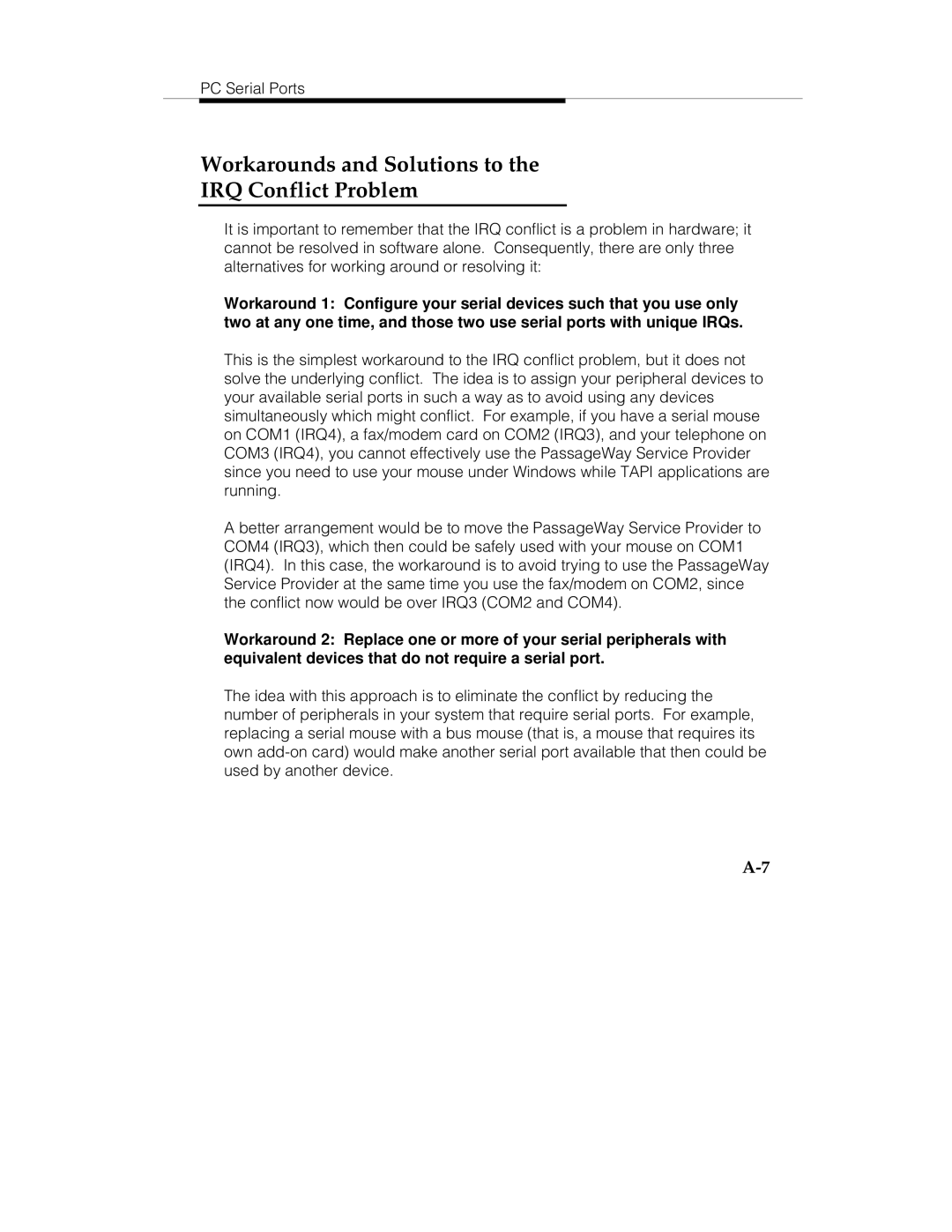
PC Serial Ports
Workarounds and Solutions to the
IRQ Conflict Problem
It is important to remember that the IRQ conflict is a problem in hardware; it cannot be resolved in software alone. Consequently, there are only three alternatives for working around or resolving it:
Workaround 1: Configure your serial devices such that you use only two at any one time, and those two use serial ports with unique IRQs.
This is the simplest workaround to the IRQ conflict problem, but it does not solve the underlying conflict. The idea is to assign your peripheral devices to your available serial ports in such a way as to avoid using any devices simultaneously which might conflict. For example, if you have a serial mouse on COM1 (IRQ4), a fax/modem card on COM2 (IRQ3), and your telephone on COM3 (IRQ4), you cannot effectively use the PassageWay Service Provider since you need to use your mouse under Windows while TAPI applications are running.
A better arrangement would be to move the PassageWay Service Provider to COM4 (IRQ3), which then could be safely used with your mouse on COM1 (IRQ4). In this case, the workaround is to avoid trying to use the PassageWay Service Provider at the same time you use the fax/modem on COM2, since the conflict now would be over IRQ3 (COM2 and COM4).
Workaround 2: Replace one or more of your serial peripherals with equivalent devices that do not require a serial port.
The idea with this approach is to eliminate the conflict by reducing the number of peripherals in your system that require serial ports. For example, replacing a serial mouse with a bus mouse (that is, a mouse that requires its own
